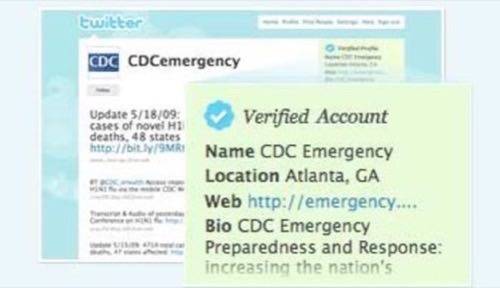Twitter impersonations have been happening ever since the popular microblogging site has become mainstream. St. Louis Cardinals manager Tony La Russa is just the latest high-profile celebrity to fall victim to a Twitter faker. La Russa filed a lawsuit with the Superior Court of California in San Francisco last month and will seek damages, although Twitter has taken down the bogus account and calls the lawsuit “an unnecessary waste of judicial resources bordering on frivolous”. The company announced on its blog today that it will take further steps in the future to prevent this from happening again.

According to Twitter, “impersonation violates Twitter’s Terms of Service and we take the issue seriously. We suspend, delete, or transfer control of accounts known to be impersonation” and has done so in this case. The company has said it will “not play ball” with La Russa and does not intend to settle this suit or pay any damages.
Twitter’s Solution:
According to the Twitter Blog, the company is experimenting with a solution to prevent impersonation from happening in the future. This is what it came up with:
“We do recognize an opportunity to improve Twitter user experience and clear up confusion beyond simply removing impersonation accounts once alerted. We’ll be experimenting with a beta preview of what we’re calling Verified Accounts this summer.”

The verification process will first begin with “public officials, public agencies, famous artists, athletes, and other well known individuals at risk of impersonation”. Twitter wants to point out that this does not mean that all accounts without the authentication seal are fake. One way to determine authenticity is to check the official web site of the person for a link back to their Twitter account. The company also wants you to know:
“When we do start testing Account Verification, we will be sure to provide ample methods for feedback. Initially, verification will not be tested with businesses. However, we do see an opportunity in that arena so we’ll keep you posted when we have something to share.”
Apparently the Twitter guys have been thinking about selling corporate clients a “verified account” for some time now. Check out this exchange from the transcripts of this year’s D: All Things Digital:
Walt Mossberg: 24 percent say they’d pay for power accounts. Do you think that’s a good idea?
Evan Williams: Yes, I think it’s a good idea. We’ve talked about it for a long time. Here’s how it might work: Lots of commercial users are on Twitter already. That’s not odd, and it’s happening successfully already. But we could give those users tools to make it better. For instance, here’s how P&G (PG) might sell Tide….Wait that’s a bad idea. How about The Wall Street Journal? No, they’re a media company; that won’t work either. How about Dunkin’ Donuts? People like Dunkin’ Donuts. They have an affinity for that, and they’re already following Dunkin’ Donuts. So one thing we can do is tell new users that the Dunkin’ Donuts account on Twitter is actually Dunkin’ Donuts. To verify that.
We think it’s great that Twitter is finally going to do something about the growing problem of impersonations, but why now? Is it because of lawsuits from powerful celebrities (La Russa is also a lawyer), or is it simply trying to do the right thing for its users? It’s a shame that ordinary users are not afforded the same verification measures as the “beautiful people”, who tend to use the service far less to actually connect with others. We have heard stories of ordinary people and community blogs struggling with the company for many months to have control of their own names on Twitter and are a little skeptical about their motives. Tell us what you think.
















